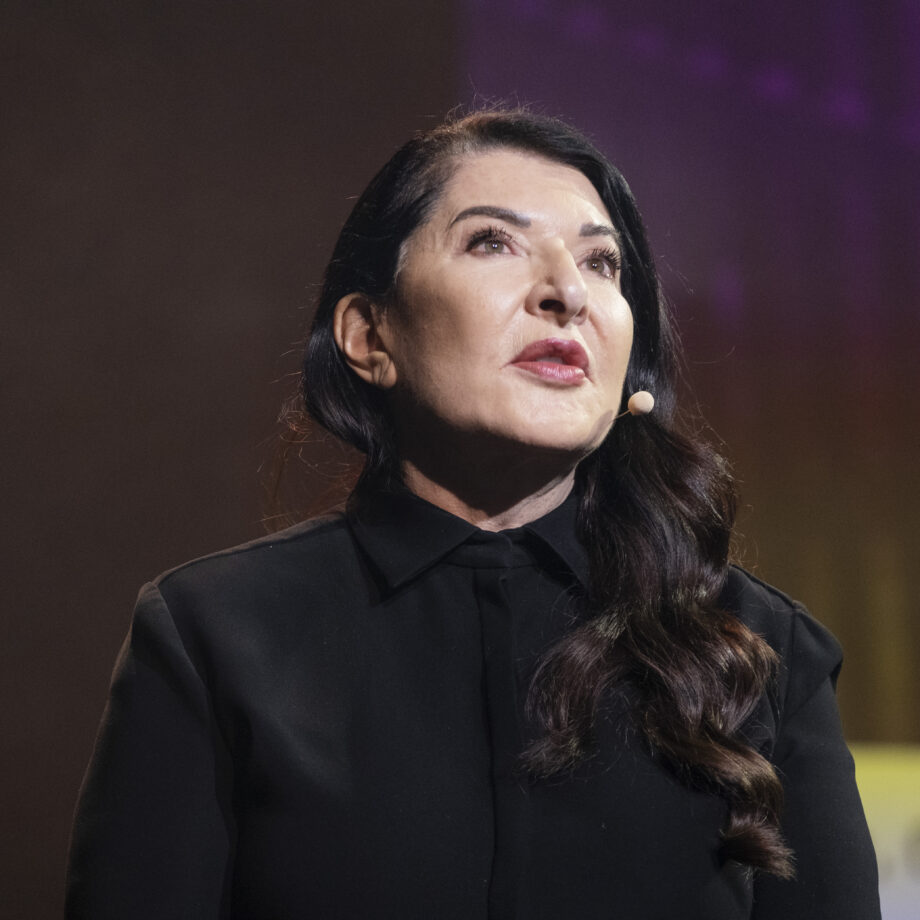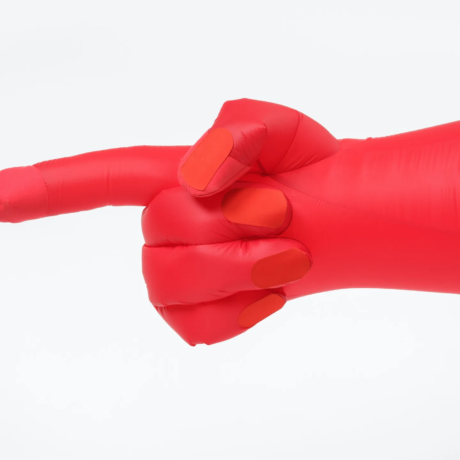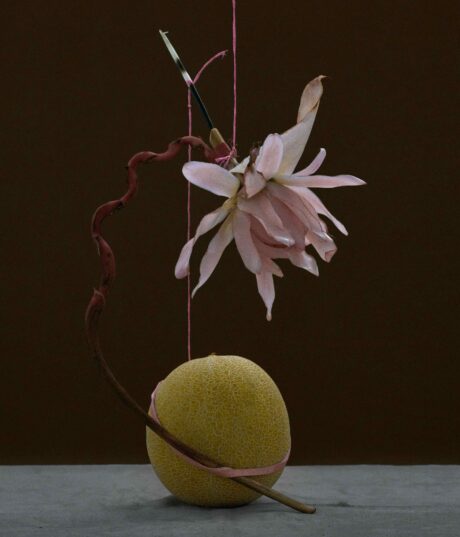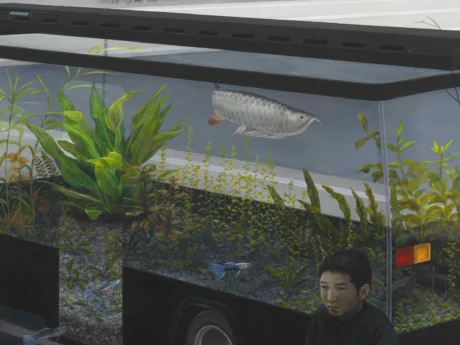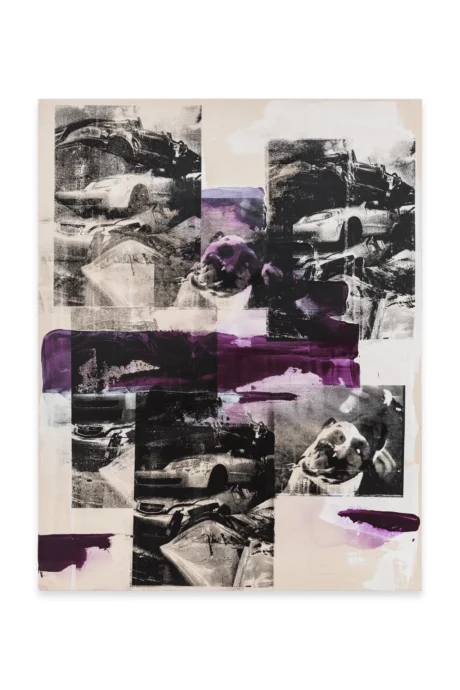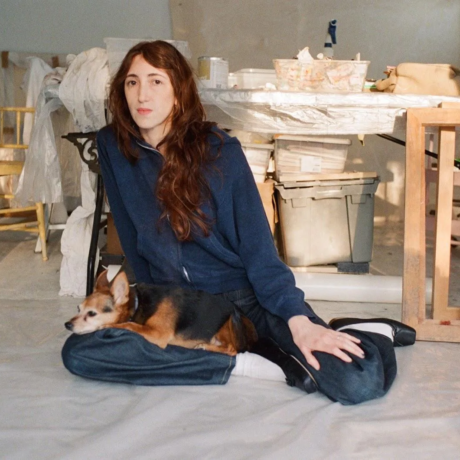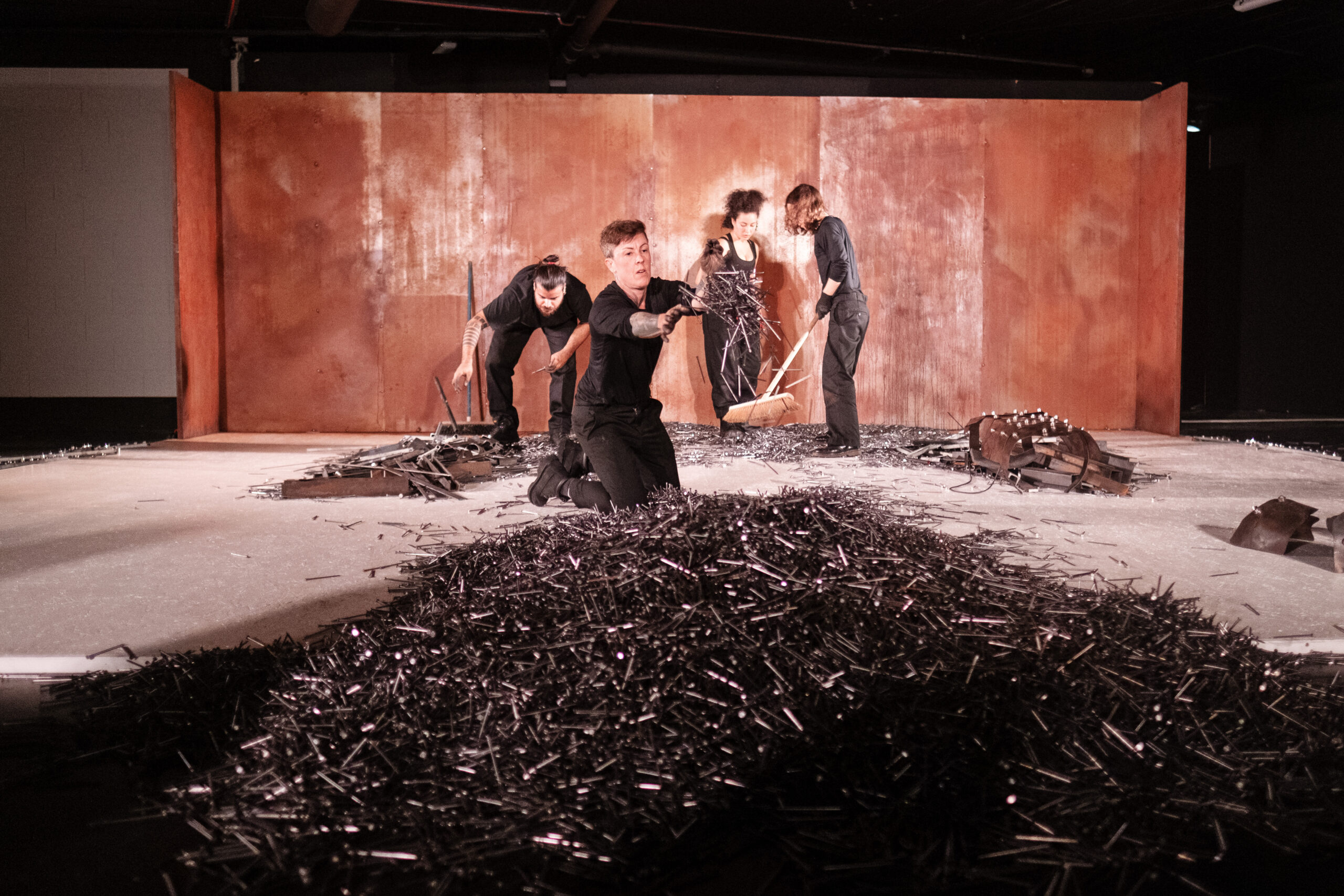
Loved by some, intensely disliked by others, the brutalist buildings that populate the south bank of the river Thames are an integral part of the iconic London skyline nowadays. The Southbank Centre is among them, with the Hayward Gallery providing an alternative way for curating contemporary art in its brutalist interior space. Unsurprisingly, a radical takeover is underway inside the Queen Elizabeth Hall and the Purcell Room, part of the Southbank Centre, where the Marina Abramović Institute is presenting to the public Takeover until October 8, 2023.
Purposefully, the Takeover shows the work of eleven performance artists who have each trained at the Marina Abramović Institute (MAI). The diverse cast includes Collective Absentia, Carla Adra, Cassils, Paula Garcia, Miles Greenberg, Sandra Johnston, Carlos Martiel, Yiannis Pappas, Paul Setúbal, Aleksandar Timotic and Despina Zacharopoulou.
Each work is performed in a space chosen by the artists, including the main hall, the auditorium, the stage, the basement, the small locker room, behind the curtain, the bathroom, and more. These are notably all unconventional spaces displays of performance art, and the public is left to their discretion to explore the space and performances hidden within.
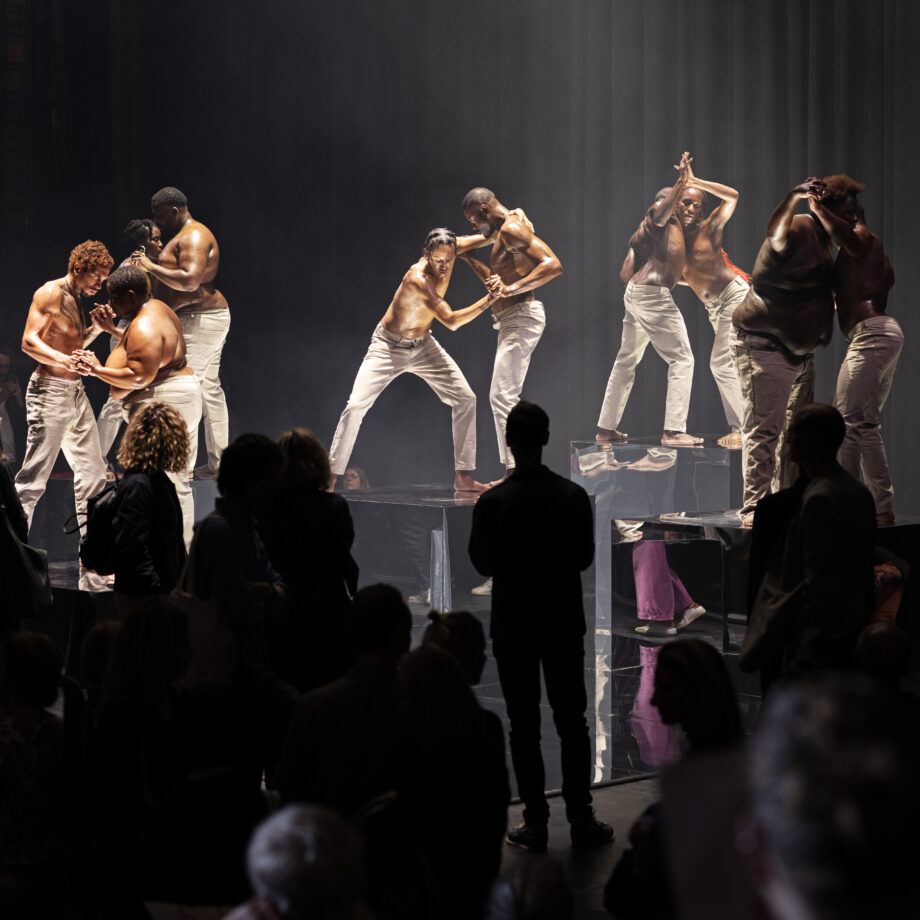
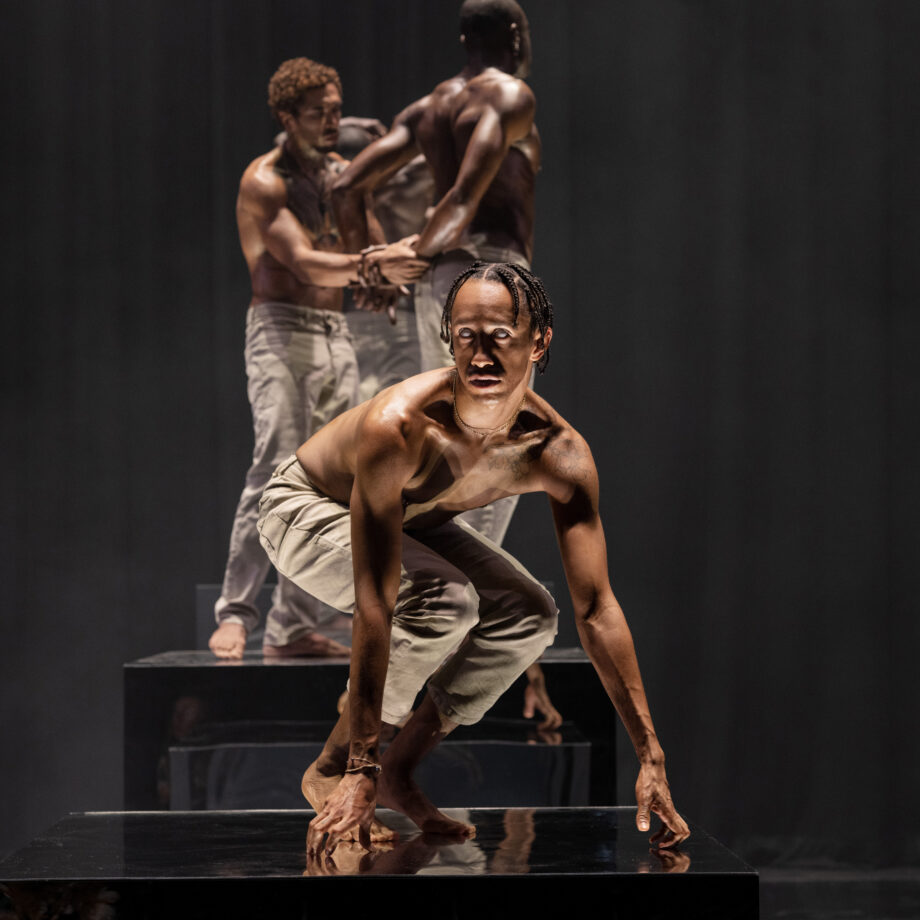
Before the opening of the Takeover, Marina Abramović explains to me that a central element in the MAI training is the sense of time and self-consciousnesses: “How to deal with the time, how to deal with their presence, how to deal with the will power, how they deal with the public, how they create a charismatic space, all of this stuff needs to be taught through rigorous training because it is not easy at all. If you are performing for 5 or 6 hours continuously, after two hours, it is difficult to continue. You have to figure out where your consciousness is, where your breathing is, and where your self-control lies. That needs to be trained, and I have a lot of experience dealing with it. However, the work is their own, and it has to be original and come from their own material, culture, and background”.
The medium of long-duration performance is seldom present in the British art scene. London-based performance artist Despina Zacharopoulou, who is part of the Takeover with her work Dokimi/Essay/Essai, told me that this is the biggest event she has performed in her career. Although her work has been well received, she notes that long durational performance is uncommon in the UK. “My work includes elements of nudity, pain and violence, too. It is a visceral practice, so this isn’t very common either,” she says.
The Marina Abramović Institute casts artists for performances through auditions. Then, it prepares the artists with a strict training routine that includes fasting and silence in preparation for the events.
Several artists in the Takeover have attended Cleaning the House, a workshop developed by Abramović to reset the body and help understand physical and mental limits. Despina Zacharopoulou attended the Cleaning the House workshop twice and comments on the intensity of training: “All the exercises that Marina has developed along her career help durational performance artists in gaining this different pace to change rhythm from the very fast pace we have in our everyday life, and to slow down and really become attuned to everything that happens within the performance in the space. The sense of time in this particular work I am performing for the Takeover at the Southbank Centre is clearly different compared to my previous works because of the training that has gone into it”.
Zacharopoulou’s words resonate with me when I enter the space where I am immediately confronted with artist Yiannis Pappas performing A Key, a performance that lasts five consecutive days, a unique example of physical and mental endurance and commitment to the performing arts.
This commitment is shared by Abramović, who tells me that “the legacy for performance artists is important to me. I started my institute the moment I stood up from the MOMA table of The Artist is Present because there are so many young artists who need guidance. And it’s only long durational performances that I want to teach,” Abramović comments.
Among the group of artists, Miles Greenberg experienced Abramović’s work at a young age when his mother took him to see the acclaimed artist performing in NY in 2012. It was a turning point for the artist, who started his performance work at the age of sixteen.
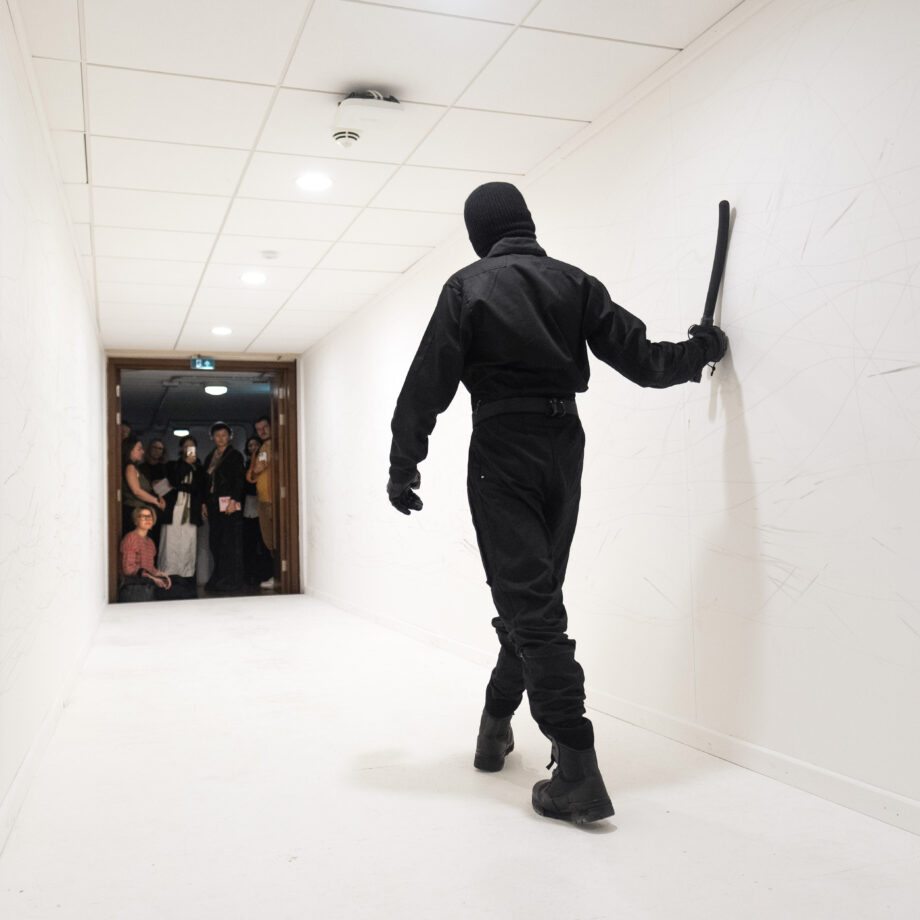
Greenberg eagerly notes the effectiveness of the Abramović method: “Even the basics I learned via the MAI training, even just the physical exercises, the method to concentrate, even that makes a huge difference. Little things improve your practice for your body when performing. They are ways to teach your body”.
Greenberg performed in the Takeover at the Royal Theatre Carre’ in Amsterdam in 2022, and now in London, he performs the work Water in a Heatwave on the main stage. “I am performing on a main stage for the first time,” says Greenberg. “It will be only my work on the stage with the curtains closed. The most interesting part is that I have kind of run away from theatre for a lot of my life. My mum was a theatre actress, so my earliest memories are of being on tour with her. The stage was somewhere I never saw myself or my work either. But now, we are able to access the stage in a very different way to analyse the work throughout the curation process. So I am very curious as to how it will feel in front of this proscenium public, and I am very excited about it. The audience will see something very different here at the Southbank Centre”.
The physical intensity of this particular performance is undeniable, even though it requires no involvement from the public. Marina Abramović tells me that this approach is intentional. “It’s so important that all the attention is the artists”, says Abramović. “Each piece that the artists are developing, the participatory and the non-participatory pieces, need the public to be there because they need the energy of the public for endurance. It is all really emotional and demanding”.
From the breathtaking solo performance of Carlos Martiel in Nobody (2023) that references the British colonial past to the violent energy in the solo performance Because the knees bend of Paul Setubal, I am left with mixed feelings. It is unlike anything else. And I am frustrated that I did not have enough time to sign an agreement with Despina Zacharopoulou to experience her performance.
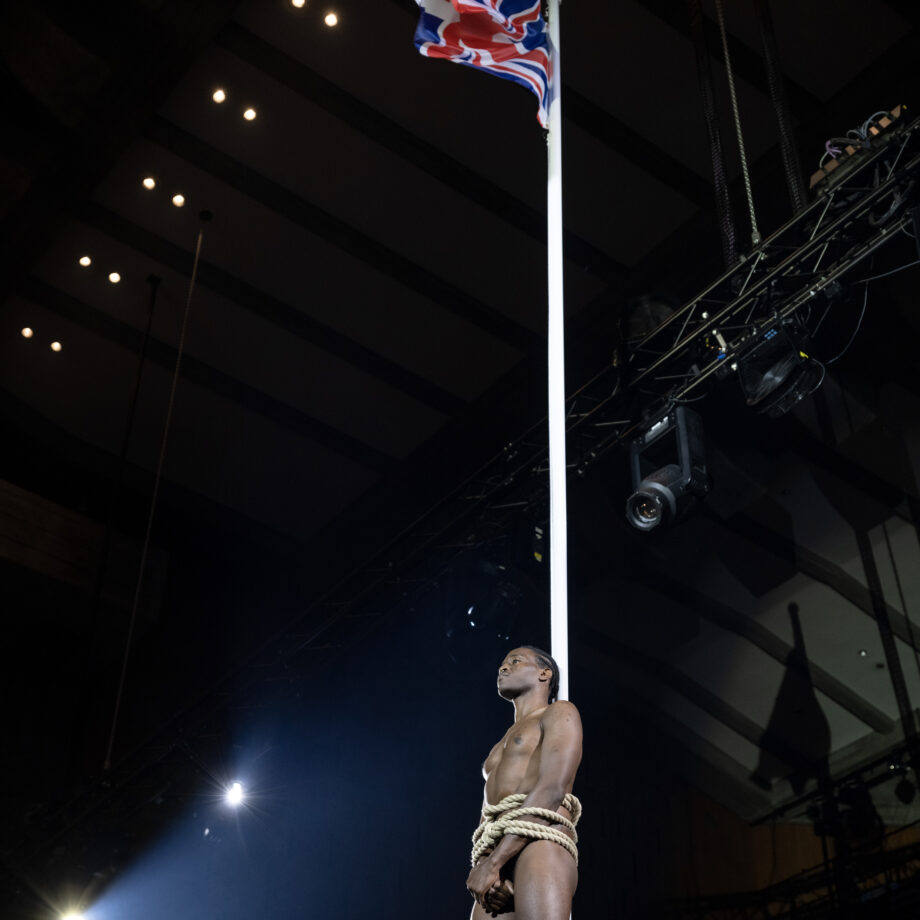
While walking throughout the building, Marina Abramović is present. She is exploring the performances, too. But her presence does not detract attention from the eleven performances. She explained, “My role is complete support to a young generation of performance artists. I don’t want to drag away any attention from the performers and their work. The public is going to see eleven long durational performances till Sunday, using all the spaces within the Queen Elizabeth Hall. This has never happened before. In my time, nobody helped performance artists, nobody gave a shit. I don’t want that to happen to them. I want to take care of them”.
The Takeover is a full-circle moment. Abramović says: ‘I believe in a triangle of energy, three things simultaneously. We wanted to show these particular practices here, during my exhibition at the Royal Academy, which took seven years to happen due to the pandemic, and my new production and performance for the English National Opera with The Seven Days of Maria Callas. So, we are elated and grateful to the Southbank Centre for opening its doors to us at this time for the Marina Abramovic Institute Takeover’. Undeniably, Marina Abramovic is taking over the London art scene this Autumn.
Words by Romina Provenzi
